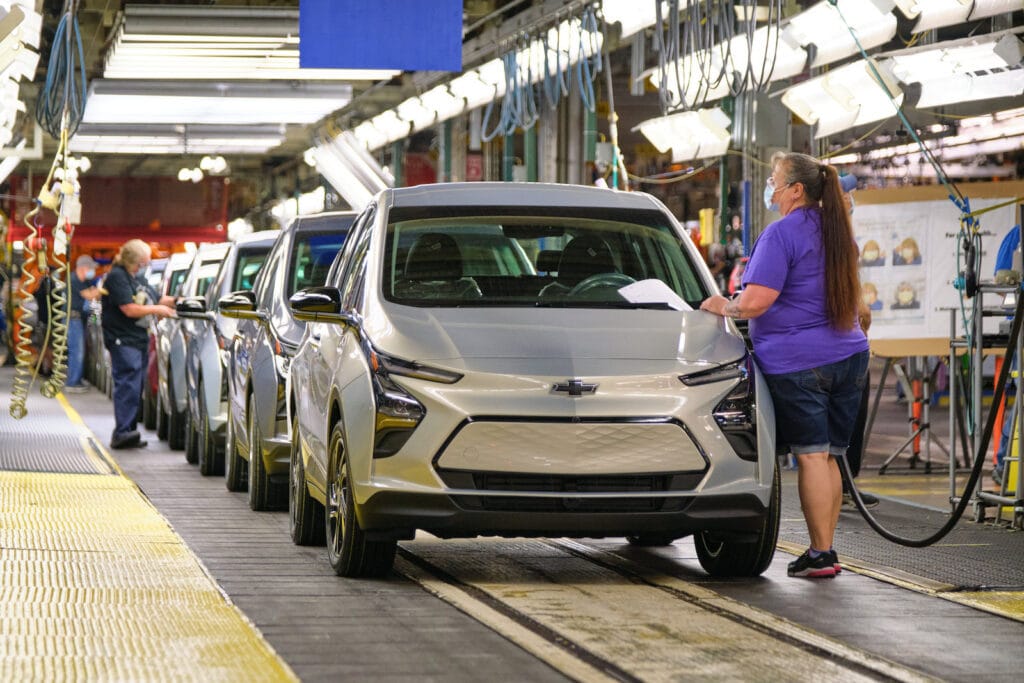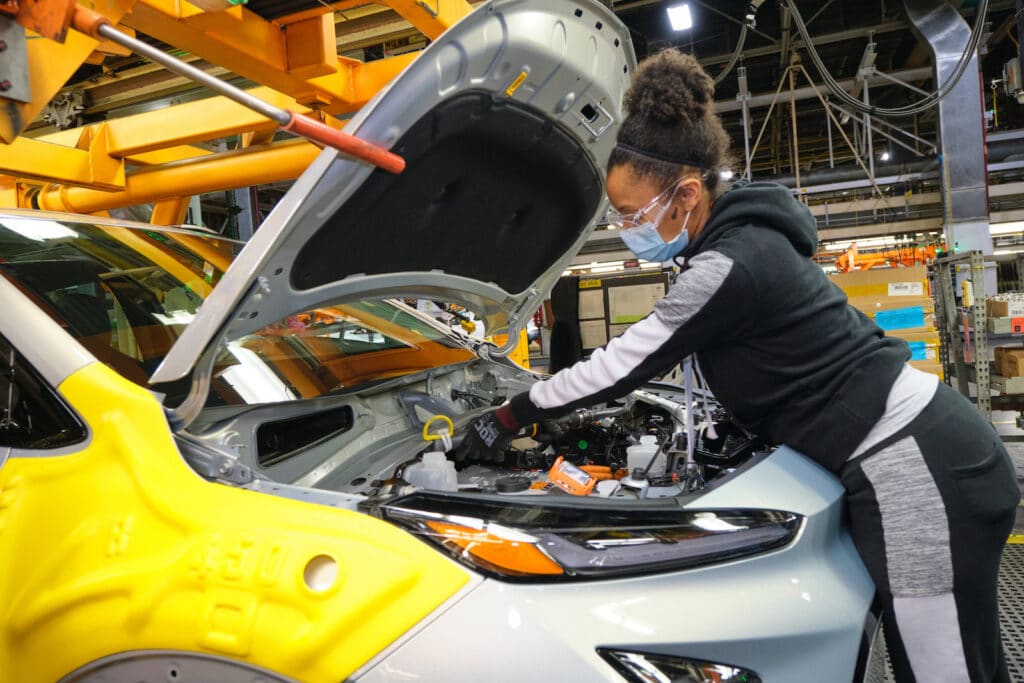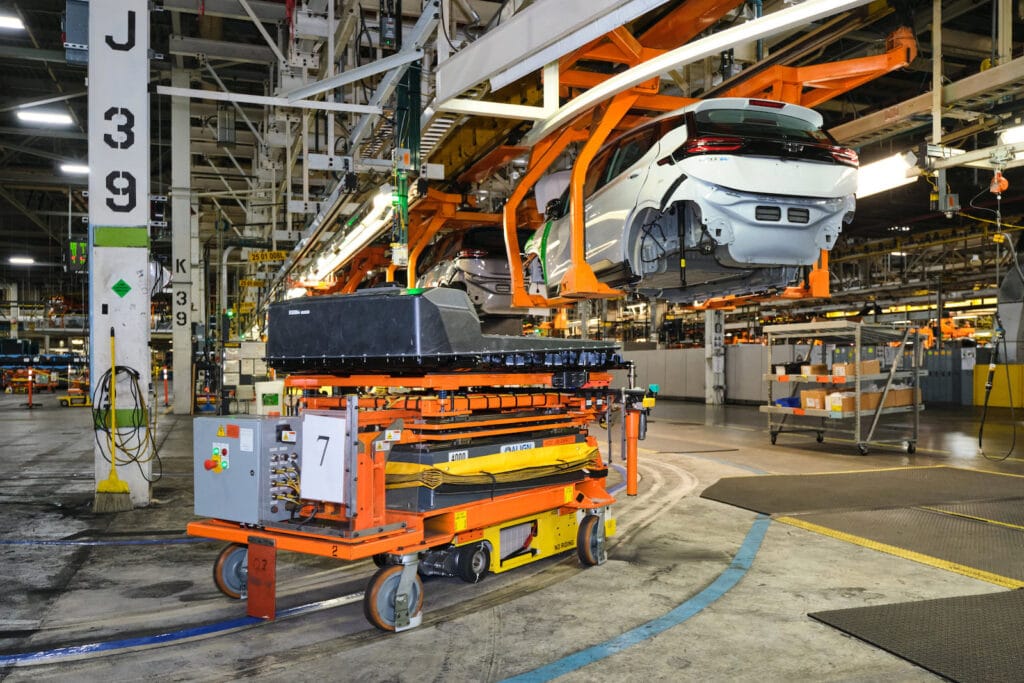General Motors reached a deal with LG Chem where the South Korean battery maker will pay the $1.2 billion of the $2 billion automaker spent to recall more than 140,000 Chevrolet Bolt EVs due to its battery issues.

The auto company recalled basically of the Bolts built after more than a dozen of the vehicles caught on fire. After a lengthy investigation, it was determined a defect in the production of the battery — a torn anode and a folded separator — was the reason for the problem.
During the investigation by the two companies, GM shut down the Orion (MI) plant that builds the EV and newly introduced EUV. LG Chem’s subsidiary that produces the batteries, LG Energy Solutions, also halted battery production at the two sites in Michigan building the batteries.
The issue has since been resolved and battery production — with software changes — has resumed. The company is looking to replace the batteries in all the existing Bolt vehicles before resumption of full production on the new vehicles begins, starting in the next week or so.
Adding to the bottom line

As a result of the agreement, GM will recognize an estimated recovery in its third-quarter earnings that will offset $1.9 billion of $2 billion in charges associated with the recalls, the company noted in a release.
“LG is a valued and respected supplier to GM, and we are pleased to reach this agreement,” said Shilpan Amin, GM vice president, Global Purchasing and Supply Chain. “Our engineering and manufacturing teams continue to collaborate to accelerate production of new battery modules and we expect to begin repairing customer vehicles this month.”
Essentially, LG Chem agreed to cover the recall and expenses, which currently amounts to $1.2 billion, but the final cost won’t be known until the number of batteries replaced is determined.
“While the recall measures will (proceed) with complete replacement of battery packs and modules made for the early models of batteries, the more recently manufactured battery modules will be selectively replaced following diagnostic software screening,” LG Energy Solution said in a statement.

Next steps
GM said earlier it will prioritize Chevy Bolt EV and EUV owners whose batteries were produced during specific build timeframes where it believes battery defects appear to be clustered. The company established a notification process that will inform affected customers when their replacement modules will be available.
The new batteries will include an extended battery 8-year/100,000-mile limited warranty. The updates will be conducted at GM dealers. Owners can schedule an appointment in about 60 days.
Additionally, the company is going to introduce new diagnostic software to increase the available battery charging parameters over the current guidance. It’s designed to detect abnormalities to indicate if the battery in a vehicle is damaged by monitoring its performance.
If the battery doesn’t hit the performance mark, it will warn the vehicle’s owner and prioritize “damaged battery modules for replacement. It is GM’s intent that further diagnostic software will allow customers to return to a 100% state of charge once all diagnostic processes are complete,” the company said in a statement.







